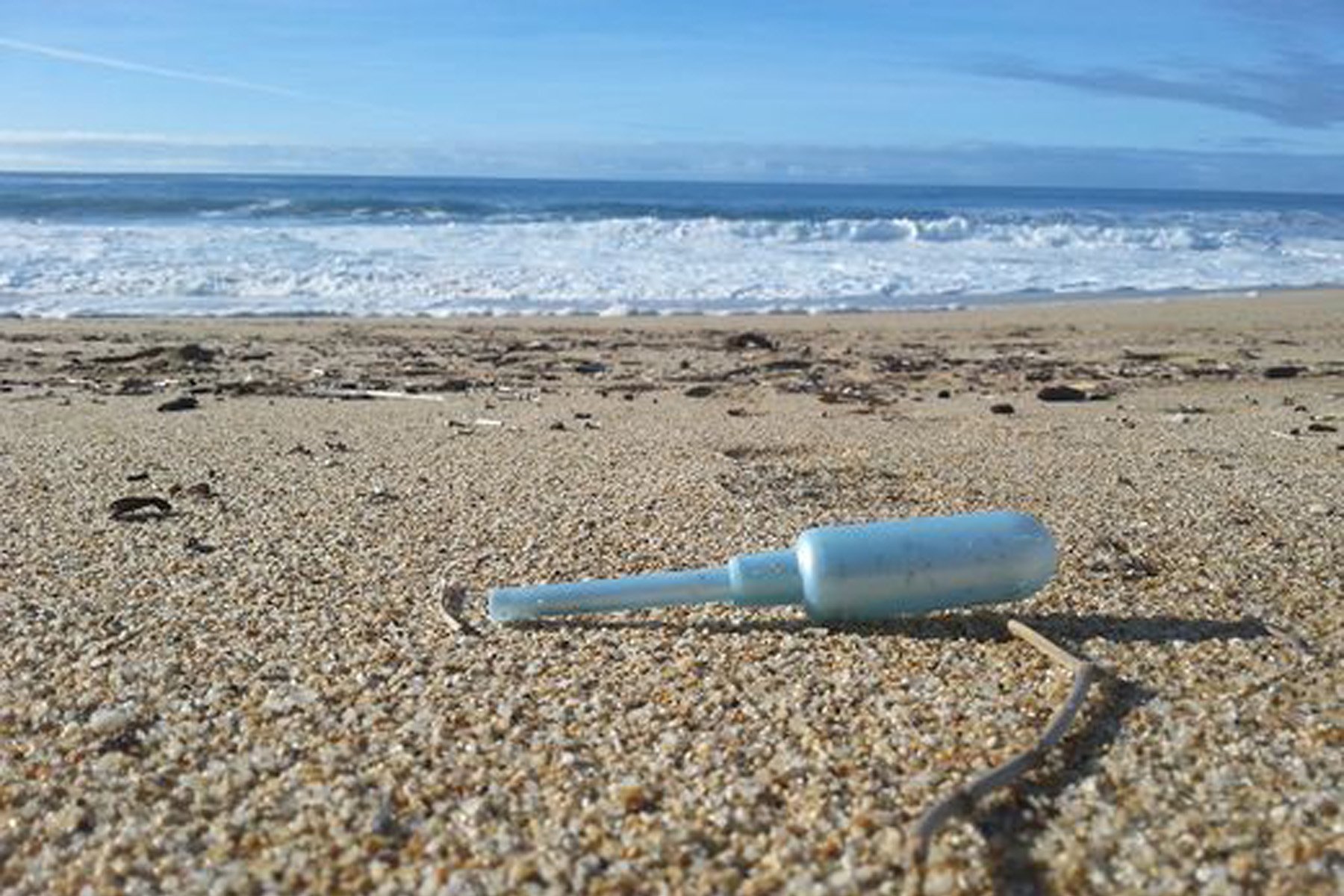Periods. Getting to know your body as it goes through the changes when they start is massive.
Your body starts to do something that is really empowering – it’s your body making changes to your reproductive system. It’s positive and normal.
It can be an awkward time of your life, without having to think of the environmental implications of the tampons or pads you use.
But you have the power to change the reality of plastic pollution.
Sanitary product manufacturers use chemically-bleached cotton in tampons and plastic for the applicator.
And did you know sanitary pads have plastic in the membranes, packaging and adhesive strips, all of which will end up in landfill?
Plastic stays in the environment for more than 600 years because it is so durable and won’t rot in our lifetime – all for a single-use product.
Why would you want plastic-free periods?
Thinking about the environment is now an extra factor you need to consider if you want to help make a difference to the 100 billion products disposed of each year that end up in landfill or the ocean.
When deciding what type of sanitary products to use, it really is up to you. There is no right or wrong product to use, but you do need to think about what you are putting inside you as reusables have both environmental and health benefits.
Did you know tampons end up in the ocean?
According to City to Sea, it’s estimated that every single day in the UK about 700,000 panty liners, 2.5 million tampons and 1.4 million pads are flushed down the toilet. Many of these block our sewer systems and escape into our rivers and seas.
Given the death rate of wild sea birds each year (around one million) your tampon or pad might well have ended up in their stomach causing them to die.

So how can you switch to plastic-free periods?
Here’s some alternatives to single-use products to help you help the planet:
Reusable tampons
Some girls like tampons because they’re easy to store in a purse or pocket and there is a reusable product out there by wearedame.co that is neat.
Organic tampons
These are non-bleached organic cotton tampons that don’t have any plastic or chemicals in them.
Reusable pads
A ‘conventional’ menstrual pad contains around the same amount of plastic as four carrier bags* which is why swapping to reusable is brilliant. There are SO many pads available and in really cool colours! Check out Etsy.
Menstrual cups
Unlike tampons and pads, cups (such as Moon Cup) collect menstrual fluid rather than absorbing it so they do need changing more often depending on your flow. One cup is reusable for between five to ten years which makes their long-term cost lower than that of disposable tampons or pads, though the initial cost is slightly higher. You can now buy them in most high street chemists.
Period pants
These are absorbent pants that you wash after use. They also last up to two years, so think of the money they will save you. They are more expensive, and you’ll need to find a pair that works for you, but again, you don’t need to worry about running out.
A new way to manage your time of the month
Plastic-free periods are positive. They are the new way to manage your time of the month while being better for the environment.
I know it might seem scary, because washable pads and cups aren’t the norm right now, but if you take into consideration how tampons are chemically bleached and that you use them in one of the most sensitive parts of your body, it is a good decision to change.
We know we need tampons or pads every month, so why not make reusables your go-to choice?
You will get used to your period and get to know the signals every month. One thing you can do to really make a difference to the future of the planet is to use alternatives.
Be kinder to your body and the planet
Reusable period products mean you always have what you need. They will need to be washed, yes, but once you have a set of reusables you are sorted for the next five or so years.
They are kinder to your body and the planet. There’s lots of help out there too. #plasticfreeperiods is a great hashtag to follow as the advice comes from a charity called City to Sea.
To find out more about Zero Waste Maman, follow her on Instagram.
*from city to sea.
Read more: Plastic-free beauty: Eco-friendly swaps for your skin
